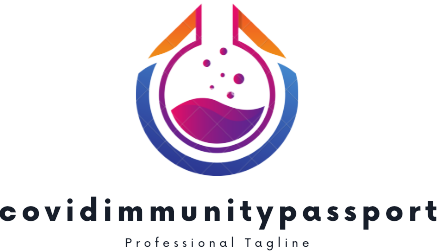Pregnancy is a beautiful and transformative journey for women, but it is not without its challenges. Alongside the joy and anticipation, expectant mothers may also face risks and complications that can significantly impact their health and the well-being of their unborn child. Understanding these risks, their symptoms, causes, and diagnosis is crucial for early detection and effective management. This article aims to shed light on the various risks and complications that can arise during pregnancy, exploring their common symptoms, causes, and diagnostic methods. Additionally, it will delve into the treatment and management strategies available to navigate these challenges, ensuring the best possible outcome for both mother and baby. Finally, the article will emphasize the importance of prioritizing maternal health and provide strategies to minimize risks and promote a healthy pregnancy. By equipping women with knowledge and resources, we can empower them to make informed decisions and take proactive steps towards a safe and fulfilling pregnancy journey.
1. “Understanding the Risks and Complications of Pregnancy: Common Symptoms, Causes, and Diagnosis”
Pregnancy is a beautiful and miraculous journey for many women, but it is not without its risks and complications. It is essential for expectant mothers to be aware of these potential issues and to understand the symptoms, causes, and diagnosis methods associated with them.
One of the most common symptoms of pregnancy complications is vaginal bleeding. While light spotting can be normal, heavy bleeding may indicate a problem such as an ectopic pregnancy or miscarriage. Other symptoms to watch out for include severe abdominal pain, severe headaches, sudden swelling of the hands and face, and blurred vision. These symptoms may be indicative of conditions like preeclampsia or gestational diabetes.
Various factors can contribute to the development of pregnancy complications. Advanced maternal age is one such factor, as women over the age of 35 have a higher risk of experiencing complications. Additionally, pre-existing medical conditions such as high blood pressure, diabetes, or thyroid disorders can increase the likelihood of complications during pregnancy. Lifestyle choices, such as smoking, drug or alcohol abuse, and poor nutrition, can also play a role in the development of complications.
Diagnosing pregnancy complications is crucial for timely intervention and appropriate treatment. Regular prenatal check-ups are the primary means of monitoring the progress of a pregnancy and identifying any deviations from the norm. Healthcare providers may perform various tests and screenings to assess the health of both the mother and the developing baby. These tests can include blood tests, urine analysis, ultrasounds, and genetic screenings. By closely monitoring the pregnancy, healthcare professionals can detect and diagnose potential complications early on, minimizing the risks to both the mother and the baby.
Treatment options for pregnancy complications vary depending on the specific condition and its severity. In some cases, lifestyle modifications, such as dietary changes or increased physical activity, may be sufficient to manage the condition. Medications can also be prescribed to control symptoms or prevent further complications. In more severe cases, medical interventions such as bed rest, monitoring, or surgical procedures may be necessary.
It is important for pregnant women to seek immediate medical attention if they experience any concerning symptoms or suspect a complication. Early detection and intervention can significantly improve the outcomes for both the mother and the baby. By understanding the risks, recognizing the symptoms, and receiving timely diagnosis and treatment, expectant mothers can navigate through their pregnancy with confidence and ensure
2. “Navigating the Challenges: Exploring Treatment and Management of Pregnancy Complications”
Pregnancy is a beautiful and transformative journey for many women, but it can also come with its fair share of risks and complications. These challenges can range from mild discomfort to life-threatening conditions, requiring prompt diagnosis, treatment, and management. Navigating through these complexities becomes crucial to ensure the well-being of both the mother and the baby.
One of the most important aspects of handling pregnancy complications is early detection and diagnosis. Regular prenatal check-ups and screenings play a vital role in identifying any potential issues before they escalate. Conditions such as gestational diabetes, preeclampsia, and placenta previa can all be diagnosed through various tests and exams. These diagnoses enable healthcare professionals to initiate appropriate treatment plans and closely monitor the progress of the pregnancy.
Treatment options for pregnancy complications largely depend on the specific condition being addressed. In some cases, lifestyle modifications, such as changes in diet, exercise, and rest, may be sufficient to manage certain complications. For example, gestational diabetes can often be controlled through a well-balanced diet and regular physical activity. However, more severe cases may require medication or insulin therapy to regulate blood sugar levels.
In instances where the mother’s health or the baby’s well-being is at risk, medical interventions may become necessary. Preterm labor, for instance, can sometimes be halted or delayed through the administration of medications called tocolytics. These medications help to relax the uterine muscles and prevent premature birth. Similarly, if preeclampsia progresses to a severe stage, hospitalization may be required to closely monitor blood pressure and provide necessary medications to protect both the mother and the baby.
Apart from medical treatments, emotional support and counseling are essential components of managing pregnancy complications. Women experiencing complications may feel anxious, stressed, or overwhelmed. It is crucial for healthcare providers, friends, and family members to provide a supportive environment where expectant mothers can express their concerns and fears. Connecting with support groups or seeking professional counseling can also be beneficial in navigating the emotional challenges associated with pregnancy complications.
In some cases, pregnancy complications may warrant delivery before the full term. This decision is typically made in consultation with healthcare professionals, taking into consideration the severity of the condition and the risks posed to both mother and baby. In such instances, medical interventions such as induction of labor or cesarean
3. “Prioritizing Maternal Health: Strategies to Minimize Risks and Promote a Healthy Pregnancy”
During pregnancy, the health and well-being of the mother should always be the top priority. To minimize risks and promote a healthy pregnancy, several strategies can be implemented. These strategies focus on maintaining optimal maternal health, detecting and managing any complications early on, and ensuring proper prenatal care. By following these strategies, expecting mothers can increase their chances of a safe and successful pregnancy.
One crucial aspect of prioritizing maternal health is regular prenatal care. Attending prenatal appointments allows healthcare professionals to monitor the mother’s health, track the baby’s development, and identify any potential risks or complications. These appointments typically involve various screenings, such as blood tests and ultrasounds, to assess the overall health of the mother and the growing fetus. Regular prenatal care ensures that any potential issues are addressed promptly, minimizing the risks associated with pregnancy.
Maintaining a healthy lifestyle is another essential strategy to prioritize maternal health. This includes eating a balanced diet rich in essential nutrients, staying physically active within the limits recommended by healthcare professionals, and avoiding harmful substances such as tobacco, alcohol, and illicit drugs. Adequate nutrition and regular exercise promote healthy weight gain, reduce the risk of gestational diabetes and high blood pressure, and improve overall well-being during pregnancy.
Educating expecting mothers about the importance of self-care and stress management is also crucial in promoting a healthy pregnancy. Pregnancy can be a physically and emotionally demanding time, and excessive stress can have adverse effects on both the mother and the baby. Encouraging mothers to engage in relaxation techniques, seek support from loved ones, and practice self-care activities such as meditation or gentle exercise can help reduce stress levels and promote a positive pregnancy experience.
Furthermore, providing comprehensive education about common pregnancy symptoms, warning signs of complications, and when to seek medical attention is essential. Knowledge empowers expectant mothers to recognize potential issues and take appropriate action promptly. Open communication between healthcare providers and pregnant women is vital to ensure any concerning symptoms or changes in health are addressed promptly and effectively.
In some cases, high-risk pregnancies may require additional specialized care. Women with pre-existing medical conditions, such as diabetes or hypertension, or those who have experienced complications in previous pregnancies may fall into this category. Close monitoring, specialized treatment plans, and collaboration between healthcare providers are essential for managing these high-risk pregnancies and minimizing potential complications.
You can find out more about this theme here: https://bbgate.com/threads/synthesis-of-methylone-bk-mdma-from-catechol.25/.


